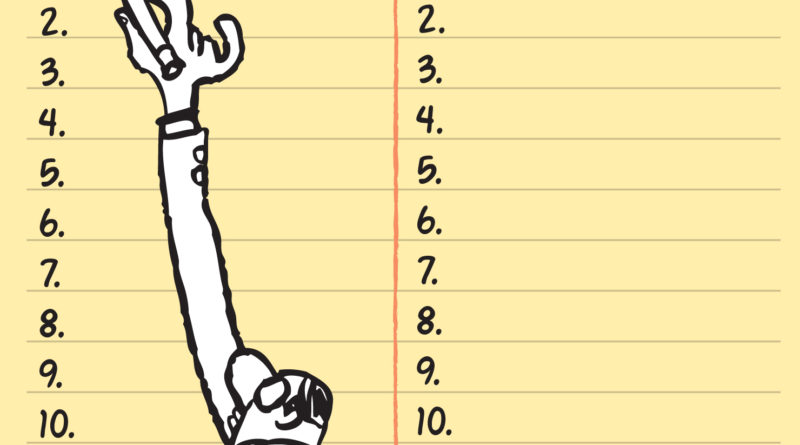WORLD POLITICS: COVID-19 SPECIAL – The West’s politics in a post-pandemic world
The shock of the coronavirus crisis may reverse trends such as the decline in support for mainstream parties. Much depends on the severity of the economic fallout.
LONDON • The United States and key European countries are still gripped by the coronavirus pandemic. Their struggle against the contagion is far from over and will likely worsen in the coming weeks as the numbers of deaths and infections continue to climb.
But even at this relatively early stage in the pandemic, it is already clear that the global health crisis will have profound consequences on the political systems of the Western world.
In some key countries, the battle against the coronavirus will strengthen the credibility of old established political parties at the expense of the populist movements which sprang up throughout the Western world over the past decade. But in others, the reverse will be true, and the old political order will be overthrown.
The question is which trend will be stronger: a reassertion of past certainties, or a jump into the political unknown?
 Ads by: Memento Maxima Digital Marketing
Ads by: Memento Maxima Digital Marketing
@ [email protected]
– SPACE RESERVE FOR YOUR ADVERTISEMENT
THE DANGERS OF DEPRESSION
Much will depend on the economic impact of the pandemic. It is by now certain that much of the world will experience a recession; after all, in strictly technical terms, a recession is defined as two successive quarters in which an economy contracts, and one quarter of this year is already lost in terms of economic output.
The real unknown, however, is whether the recession coming our way will ultimately turn into a depression, a far more sustained, deeper and broader decline across all areas of economic activities.
And that makes a huge difference to predicting political outcomes for, while we have plenty of examples of political structures remaining unchanged as a result of periodic recessions which come and go, the political impact of depressions is much more difficult to predict, and much more sinister in nature.
In the industrialised Western world, both the so-called “Long Depression” of the 1880 and 1890 and “Great Depression” of the 1930s spurred a rise in nationalist and extremist tendencies and arms races and ultimately, led to two world wars. Of course, that terrible historical record need not replay itself now, even if major economies do sink into a depression. But their salutary lesson should not be forgotten.
 Ads by: Memento Maxima Digital Marketing
Ads by: Memento Maxima Digital Marketing
@ [email protected]
– SPACE RESERVE FOR YOUR ADVERTISEMENT
WHO WILL SURVIVE?
Still, it is obvious that however hard Western economies will be hit, not all people will be hit in the same way. For, while Western politicians are now following the model of French President Emmanuel Macron who declared “war” against the virus and mobilised his entire nation against the “unseen enemy”, the reality remains that the “armour” protecting the people marching into this war offers varying degrees of protection; that will mean that how well they emerge from it, assuming they survive at all, will be very different.
For professional people – often those in highly paid jobs – the lockdowns now in operation in many Western countries are just an inconvenience; such people can work from home, and technology gives them the possibility of pursuing their professions almost unhindered.
But for the millions of people employed in the retail and hospitality sectors, as well as for all the small business owners who depend on daily takings and have very thin margins, the lockdown simply means unemployment and bankruptcy.
 Ads by: Memento Maxima Digital Marketing
Ads by: Memento Maxima Digital Marketing
@ [email protected]
– SPACE RESERVE FOR YOUR ADVERTISEMENT

 Ads by: Memento Maxima Digital Marketing
Ads by: Memento Maxima Digital Marketing
@ [email protected]
– SPACE RESERVE FOR YOUR ADVERTISEMENT
More painful still is the fact that many of those deemed essential and therefore allowed to continue working also include those who are the least paid – cleaners, hospital porters and delivery van drivers, for instance – and who are also now expected to risk their lives in the pandemic.
Sure, schemes are in place in most countries to compensate “furloughed” workers, to use the polite and now-fashionable term for those sent home by their employers. But all these schemes are temporary affairs, and all assume a fairly quick bounce-back at the end of this crisis.
Perhaps that will happen. However, what if the prolonged stay-at-home period to which most Western societies have now been subjected results in irreversible shifts in the global economy?
 Ads by: Memento Maxima Digital Marketing
Ads by: Memento Maxima Digital Marketing
@ [email protected]
– SPACE RESERVE FOR YOUR ADVERTISEMENT
NOT BUSINESS AS USUAL
High-street department stores and other retail outlets have already been ailing for years, battered by competition from online retailers. Online ordering of everything from clothing to food has exploded throughout Europe and North America in the current crisis. So, would customers go back to the high street stores once the crisis is over, once they have been exposed to the comfort of online shopping, and once online retailers know all their addresses and buying habits?
Would companies allow their executives to resume their global travel in highly priced airline seats after everyone has got used to conducting business on video? Would the conventions and conferences business survive? And would most corporations around the world still want to maintain big, expensive offices, when part of the cost of maintaining offices could be diverted into higher pay to motivate employees working permanently from home, or even recruiting the best workers in different countries?
Human beings are social animals, so it would be foolish to assume that once the crisis is over, the world will be an entirely different place. Nonetheless it may be equally foolish to assume that, having experienced different methods of communication and conducting business over the past few months, matters will simply return to the way they were.
So, it is plausible to assume that tens of millions of people in the Western world may lose their jobs permanently, and will have to retrain. And, sadly, those who may have to do so most are also those who may be the least equipped to reinvent their lives.
We could be facing the biggest social changes in generations, and such changes always have profound political consequences.
 Ads by: Memento Maxima Digital Marketing
Ads by: Memento Maxima Digital Marketing
@ [email protected]
– SPACE RESERVE FOR YOUR ADVERTISEMENT
POLITICS AND THE MEDIA
On a more positive note, it is noticeable that, in response to the shock generated by the pandemic, electorates throughout Europe and North America have tended to rally to the flag, as people always do in times of national emergencies. Ratings for all politicians in power today – even domestically controversial figures such as US President Donald Trump – are up and sometimes, as in Germany or Britain, for instance, by large percentage points.
It is also striking that old, traditional media networks are back in favour. The BBC, Britain’s state broadcaster, faced imminent destruction at the hands of the current government. That threat is now gone, as “Auntie” – as the Brits affectionately call their national network – returned to doing what a good auntie does best: Be stern but kind, speak the truth even if the news is bad and remain resolutely steady and dependable in an emergency.
Similar trends have been observed in all other European countries, and are also mirrored in the print media, as people turn to well-established newspapers because they know that they can be relied upon to provide accurate information.
Still, these are early days. In places like Germany and perhaps Britain and France, the crisis may well strengthen for a longer period the reputation of the established old parties and politicians, because they are seen as the only ones capable of steering their nations through such turbulent times. It is difficult to see how the far-right Alternative for Germany party could really act as an alternative for the calm, composed and competent Chancellor Angela Merkel.
In France, it is difficult to see how a gaggle of “yellow vest” protesters or National Front right-wingers can have a better claim to government than President Macron. And in the US, the crisis may well cost President Trump his re-election quest; the desire of many Americans for the return of politicians with experience in government rather than a penchant for populist slogans is becoming evident.
But in other countries where the handling of the crisis has been much more traumatic – in places like Italy, for instance – matters could go the other way, and populists may triumph. There is a deep resentment in Italy about the way the country has been treated by its European neighbours and the perceived failure of the European Union to come to Italy’s aid.
It matters little whether this Italian sentiment is justified; what matters is that it is deeply felt, and it will entail serious political consequences.
 Ads by: Memento Maxima Digital Marketing
Ads by: Memento Maxima Digital Marketing
@ [email protected]
– SPACE RESERVE FOR YOUR ADVERTISEMENT
AGE OF STATE INTERVENTION
Throughout Europe and North America, the overall political mood is changing. Governments are no longer expected to be mere impartial regulators of markets; they are now expected to influence and direct markets, to plan for future crises and to ensure that essential supplies remain under national control, and not outsourced to other countries just because some company executives have calculated that doing so would boost their profits.
Gone are the days when a small government was fashionable. Now, the age of state intervention, the reassertion of state control over infrastructure and massive investments in local economic enterprises is about to return.
The task for today’s politicians is how to ensure that this return to the “big state” politics of 1960s vintage does not result in the repeat of the mistakes of half a century ago, which created state protectionism and massive inefficiencies.
But don’t bet on it. For, to paraphrase Max Beerbohm – an English humorist writer a century ago – while history may not repeat itself, politicians certainly repeat one another.











